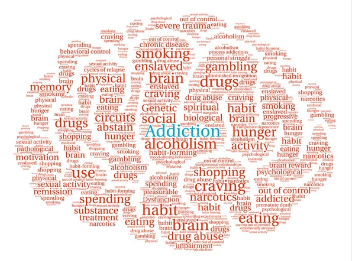Why do addicts relapse when things are good? is a question we may ask ourselves. Many people abuse alcohol and other drugs in an attempt to cope with stress or failure. In times of despair, they turn to substances as a way to numb themselves to the emotional pain that they can’t address in a healthier manner.
As sad and self-destructive as this is, it makes at least some semblance of sense to many people. They understand that when times are bad, or when someone is having a hard time seeing the proverbial light at the end of the tunnel, they may react by making poor decisions.
Often, though, people have trouble comprehending why someone would abuse drugs when their life is going well. Their confusion may be magnified if the person has completed rehab, started building a healthy life in recovery, and then relapsed.
Though they may not put it in these exact words, the question many people have is, “Why do addicts relapse when things are good?”
What Is Relapse?
To understand why an addict may relapse when things are good, we first need to understand what relapses are and why they can occur.
When used in reference to addiction recovery, the term relapse typically refers to an unwanted return to substance use after a period of abstinence. Some people consider any substance use to be a relapse, while others apply the term only to an extended period of drug abuse or the re-emergence of active addiction.
No matter its duration, a relapse represents a setback in a person’s efforts to maintain their recovery.
What Causes People to Relapse?
The feelings, experiences, or events that can cause a person to relapse are often referred to as triggers. Examples of common triggers include stress, anger, breakups or other relationship problems, difficulties at work, financial pressure, and being around people who are drinking or using drugs.
One of the many important lessons a person can learn during addiction treatment is how to identify their triggers. Once a person knows what their triggers are, they can either modify their behavior to avoid them or develop strategies for dealing with them in a manner that doesn’t involve substance use.
Why Do Addicts Relapse When Things Are Good?
In the previous section, our list of triggers included problems and negative emotions. But unpleasant experiences aren’t the only ones that can trigger a relapse.
People don’t use drugs only when life is difficult. Certain substances – especially alcohol – are commonly used to mark important events or to celebrate significant successes.
A champagne toast at a wedding. A team spraying beer in the locker room after winning the Super Bowl. A ceremonial drink to commemorate a reunion with old friends. These are just a few of the many ways that alcohol is incorporated into festive moments.
Thus, one reason why addicts may relapse when things are good is that they’ve become conditioned to associate substance use with times of joy. If they mistakenly believe they can have just one celebratory drink without sabotaging their recovery, their risk of relapse may increase.
Addiction Is a Disease, Not a Behavior
Another reason that addicts may relapse when life appears to be going well is that they have a chronic, progressive disease that requires continued vigilance to control.
We wouldn’t think of asking a person why they had a recurrence of heart problems when they had so much to be happy about, so why would we wonder how a successful person could once again succumb to the symptoms of addiction?
The overwhelming urges that are characteristic of addiction don’t simply fade away when a person gets a good job or moves into a nicer house.
There’s a reason why “one day at a time” is such a popular saying among members of the recovery community. It’s because, no matter how long a person has resisted the urge to abuse alcohol or another drug, they have to remain present and focused every single day in order to protect their recovery.
Healthy Responses to Relapse
Earlier in this post, we described a relapse as a setback in a person’s efforts to maintain their recovery. It’s important to note that we did not equate relapse with failure.
When a person relapses, that doesn’t mean that they’ve failed or that their time in treatment was wasted. Getting professional help for addiction doesn’t guarantee that a person will never relapse. But quality addiction treatment programs will teach people how to respond to relapse in the healthiest possible manner.
Effective strategies for responding to relapse can prevent a temporary setback from turning into a long-term problem.
Depending upon each person’s unique circumstances, the ideal response to a relapse can range from a conversation with a trusted friend to a return to rehab. Other options may include scheduling an extra session with a therapist or becoming more active with an addiction recovery support group.
What’s most important is that the person who had the relapse acknowledges what occurred, takes responsibility for their actions, and makes a plan to get their recovery back on track.
Relapse Prevention Help in Birmingham, Alabama
If you’ve had a relapse, or if you feel that you’re at risk for imminent relapse, please know that there’s no shame in reaching out for professional help. At Birmingham Recovery Center, we understand how challenging it can be to remain abstinent from alcohol and other drugs, and we’re committed to helping those who have encountered obstacles on their recovery journey. Contact us today to learn how we can help.

